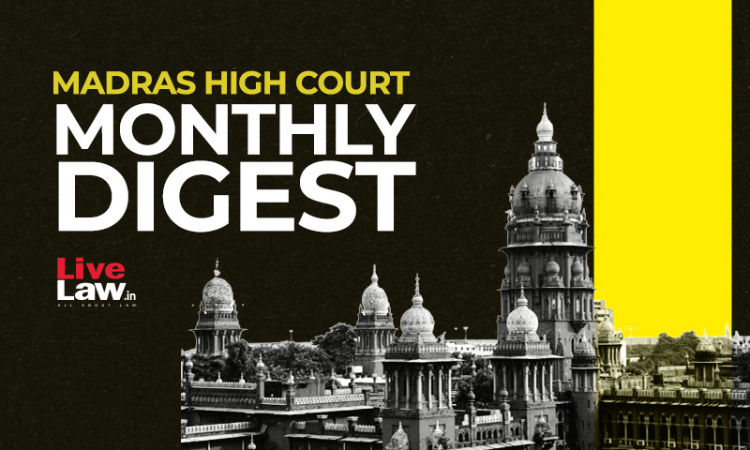- Home
- /
- News Updates
- /
- Madras High Court Monthly Digest:...
Madras High Court Monthly Digest: January 2022
Sebin James
1 Feb 2022 12:30 PM IST
A monthly round up of important cases and judgments from Madras High Court and its subordinate courts.1. Liquor Consumption In Clubs & Associations Require Valid Licenses, Cannot Act Beyond The Scope Of Registered Bye-Laws: Madras High Court Case Title: M/s.The Kancheepuram Reading Room and Tennis Club, Represented by its Secretary v. The Director-General of Police...
Next Story



